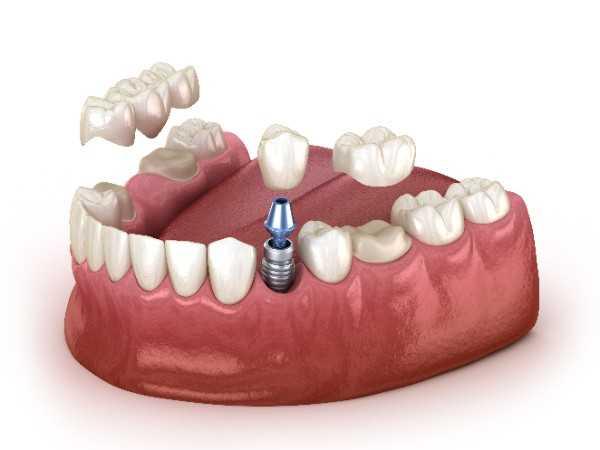Bone loss in the jaw is a common issue that many adults face after losing teeth. This condition, known as jawbone resorption, can affect your facial structure, chewing ability, and overall oral health. One of the most effective solutions to combat this problem is dental implants. But can they actually stop bone loss? In this article, we explore how dental implants work, their role in preserving bone density, and what patients in Maidstone should know.
Understanding Jawbone Loss
When a tooth is lost, the jawbone in that area no longer receives stimulation from biting or chewing. Over time, this lack of stimulation causes the bone to shrink and weaken. This process, known as bone resorption, can lead to:
- Sagging facial appearance
- Difficulty in chewing and speaking
- Changes in bite and alignment
- Increased risk of further tooth loss
Natural teeth help maintain jawbone density because the roots stimulate the bone through daily activities such as chewing. Without this stimulation, the jawbone begins to deteriorate, which makes replacing missing teeth more challenging over time.

How Dental Implants Work
Dental implants act as artificial tooth roots made from biocompatible materials like titanium. These implants are surgically placed into the jawbone and function similarly to natural tooth roots. Once in place, they:
- Integrate with the jawbone through a process called osseointegration
- Provide stability for crowns, bridges, or dentures
- Stimulate the bone to prevent resorption
By mimicking natural tooth roots, dental implants maintain the integrity of the jawbone, which is something traditional dentures or bridges cannot do. Over time, this stimulation can help prevent the bone from shrinking, preserving facial structure and overall oral health.
Signs You Might Be Experiencing Bone Loss
Recognising bone loss early is crucial. Common signs include:
- Gums that appear to recede over time
- Loose or shifting teeth
- Changes in facial appearance, such as sunken cheeks
- Difficulty wearing dentures comfortably
If you notice any of these symptoms, visiting an emergency dentist in Maidstone can help identify the problem early and discuss suitable solutions like dental implants.
The Connection Between Dental Implants and Bone Preservation
Dental implants not only restore functionality but also play a vital role in preventing further bone loss. When an implant is placed, the jawbone receives direct stimulation from the implant’s presence. This triggers bone cells to remain active, which helps in maintaining bone density.
A simplified table summarising this process:
| Feature | Traditional Dentures | Dental Implants |
| Bone stimulation | None | Yes |
| Jawbone preservation | Minimal | High |
| Long-term facial structure | Risk of sagging | Maintained |
| Chewing efficiency | Moderate | High |
As seen in the table, dental implants outperform traditional dentures in preserving jawbone structure. This makes them a long-term solution for both aesthetics and oral health.
Benefits of Dental Implants
- Preserve jawbone density– Prevent bone resorption by stimulating the jaw through chewing.
- Improve oral function– Restore natural biting and chewing ability.
- Maintain facial appearance– Prevent sunken cheeks and premature ageing.
Who Is a Good Candidate for Implants?
Most healthy adults who have sufficient jawbone are suitable candidates for dental implants. However, some conditions may require additional procedures, such as bone grafting, before implants can be placed. Good candidates generally:
- Have healthy gums free of infection
- Maintain overall good oral hygiene
- Do not have uncontrolled chronic conditions like diabetes
- Are non-smokers or willing to quit during the healing process
A consultation with a dental professional in Maidstone can help determine if you are eligible for a dental implant Maidstone procedure. They will perform scans and assess bone density to ensure optimal outcomes.
Advantages Over Other Tooth Replacement Options
- Durability– Implants can last decades with proper care, unlike dentures that may need frequent replacement.
- Stability– Unlike dentures, implants are fixed and do not slip or cause discomfort.
- Aesthetic appeal– Look and feel like natural teeth, improving confidence in your smile.
Bone Grafting and Implants
In cases where significant bone loss has occurred, bone grafting may be required before placing an implant. Bone grafting involves adding bone material to the jaw to increase volume and strength. Once healed, the implant can be placed securely. This process:
- Ensures long-term stability of the implant
- Maximises jawbone preservation
- Improves aesthetic outcomes
Patients often find that combining bone grafts with implants provides the best chance for maintaining a strong and healthy jaw.
Video Link : Dental Implants in Maidstone – Restore Your Smile
Tips for Maintaining Implants
- Maintain oral hygiene– Brush twice daily and floss around implants to prevent infection.
- Regular dental check-ups– Schedule appointments every 6 months to monitor implant health.
- Healthy lifestyle choices– Avoid smoking and limit sugary foods to maintain both implants and natural teeth.
Risks and Considerations
While dental implants are generally safe and effective, some risks exist, including:
- Infection at the implant site
- Implant failure if osseointegration does not occur
- Nerve damage in rare cases
Choosing an experienced dental team, such as the professionals at EDM, can help minimise these risks. They use advanced imaging and surgical techniques to ensure the implant is placed safely and correctly.
Cost Considerations
The cost of dental implants can vary depending on factors like the number of implants, bone grafting requirements, and the type of restoration. While implants are more expensive upfront than dentures, their long-term benefits often make them a cost-effective solution for preserving jawbone health and functionality.
Long-Term Outlook with Dental Implants
Dental implants are designed to last many years, often decades, with proper care. Unlike dentures that may slip, wear out, or accelerate bone loss, implants provide a stable foundation that mimics natural teeth. Patients who maintain good oral hygiene, attend regular check-ups, and adopt a healthy lifestyle generally experience:
- Sustained jawbone health– Continuous stimulation prevents further bone resorption.
- Improved quality of life– Eating, speaking, and smiling become more comfortable and natural.
- Minimal maintenance– Implants require similar care to natural teeth, reducing long-term hassle.
By investing in dental implants early, patients can avoid complications associated with significant bone loss, such as the need for extensive grafting or facial structural changes.

Conclusion
Dental implants offer a reliable solution to stop jawbone loss while restoring the natural function and appearance of your teeth. By stimulating the jawbone, they prevent bone resorption and support overall oral health. Patients experiencing tooth loss or early signs of bone loss in Maidstone should consult a professional to explore implant options. Whether you need urgent care or a long-term solution, an emergency dentist in Maidstone can guide you through the process. For anyone considering a dental implant in Maidstone, EDM provides expert consultation, advanced technology, and personalized care to ensure optimal outcomes.



